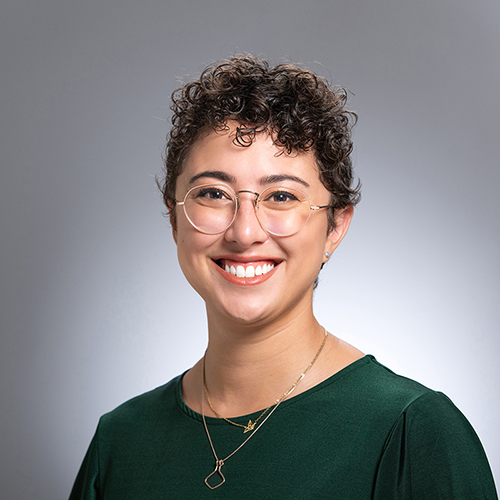We will be temporarily pausing donations, except from individuals who are already on our donor list. Please check back for updates.
The Alabama Brain Collection is helping to understand the diseased and healthy brain for the benefits of future generations.
Your donation of brain tissue makes a world of difference! The Alabama Brain Collection, a resource of the Department of Psychiatry at the University of Alabama at Birmingham, is dedicated to promoting research with postmortem brain tissue from individuals with and without neuropsychiatric disorders. If you or a loved one would like to know more or initiate the documentation needed for donation upon death, please contact Dr. Kirsten Schoonover at 205-962-5256 or kschoonover@uabmc.edu. You may also email Charlene Farmer at cfarmer5@uab.edu.
Tissue is collected in collaboration with the Alabama Organ Center and other sources. The primary goal of the ABC is to provide high-quality tissue, along with comprehensive clinical information, for hypothesis-driven research. The ABC is not conceptualized as a Brain Bank with open access but is maintained and funded through collaborative research.
For more information about the Alabama Brain Collection, including an application for tissue use, please visit the following links:
-
What is mental illness?
Mental illnesses arise from brain diseaes that cause a disturbance in thinking, mood, or behavior. Mental illness is not a personal weakness any more than diabetes or cancer. The study of brain tissue from deceased mentally ill persons is one way to discover biological bases for mental illnesses.
-
Do the brains of people with mental illness look different to the naked eye than the brains of "normal" people?
No.
-
How long after death does tissue have to be recovered?
Donated tissue is precious and should be recovered within 24 hours. We understand that this is a very difficult and stressful time for families when we ask for verbal consent.
-
Tell me more about organ donation.
Organ donation in the State of Alabama is regulated under the guidelines of the Anatomical Gift Act. The Anatomical Gift Act governs both live organ donations for medical transplantation and for making gifts of tissue to be used in medical research. If you or a loved one would like to know more or initiate the documentation needed for an eventual donation, please contact Dr. Kirsten Schoonover at 205-962-5256.
-
Can I still have a viewing and a funeral if I donate tissue?
Yes. The brain retrieval is performed in such a way that a viewing and open-casket funeral can be done. There is a no indication that a tissue donation has occured.
-
Is the brain tissue we have donated going to be used by commercial pharmaceutical companies?
This can only be done with special permission granted by the family.
-
Can studies be done individually on my loved one's brain?
The answer to this question is generally no. To date, no signature pathology (such as that found in Alzheimer's, Huntington's, or Parkinson's disease) has been discovered that identifies people with mental illness. When we study the brains of people with mental illness, we do not "test" for mental illness per se, but we study groups of subjects and compare them to subjects without mental illness. The researchers who works outside of the ABC with the brain tissue do no not know the names of the deceased, and all identified records are kept strictly confidnetial.
-
How is the brain tissue preserved?
Tissue is dissected and assigned a code usually within 24 hours of the time of death. It is then either frozen or chemically preserved for further study.
-
Is there any cost to my family if I donate tissue?
No. The ABC covers all of the costs involved for tissue recovery.
-
Why was I asked to participate in a phone interview?
Researchers merely want to know more about the medical and psychiatric conditiions your loved one may have had, and about any medications they may have taken. The data collected during the interview are strictly confidential, and are used to diagnose the tissue for research purposes.
-
My loved one did not have a mental illness, why would you want to collect their brain?
We use brain tissue from individuals with no history of mental illness so that we may make comparisons to tissue from individuals diagnosed with a mental illness. This makes it possible to identify brain structures or functions that are different in the disease condition. Without the brains of those unaffected by serious mental illness, we would not be able to analyze tissue from patients when studying the biological basis of pathology.
-
If I change my mind, will my loved one's tissue be used anymore for research?
You may change your mind about the donation and/or the interview at any time. If you do, you may contact Dr. Yogesh Dwivedi (205-975-8459) or Dr. Kirsten Schoonover (205-962-5256). Once notified of your intentions, the donation will be removed from our collection and destroyed.
-
How can I give financially to the Alabama Brain Collection?
If you are interested in providing financial support for the Alabama Brain Collection, please email kschoonover@uabmc.edu or call 205-962-5256.
General Information about the Alabama Brain Collection
 Yogesh Dwivedi, Ph.D.The Alabama Brain Collection is directed by Yogesh Dwivedi, Ph.D., Elesabeth Ridgely Shook Endowed Chair and Vice Chair for Faculty Affairs/Faculty Development. He is also the co-director of the UAB Depression and Suicide Center. Dr. Dwivedi has more than 20 years of experience in human postmortem brain studies.
Yogesh Dwivedi, Ph.D.The Alabama Brain Collection is directed by Yogesh Dwivedi, Ph.D., Elesabeth Ridgely Shook Endowed Chair and Vice Chair for Faculty Affairs/Faculty Development. He is also the co-director of the UAB Depression and Suicide Center. Dr. Dwivedi has more than 20 years of experience in human postmortem brain studies.
In addition, Kirsten Schoonover, Ph.D., serves as the Alabama Brain Collection's associate director. Dr. Schoonover has previously worked in two excellent human brain collections, accumulating more than 10 years of experience in postmortem tissue collection, preservation, and study utilization.
The Alabama Brain Collection, started in 2008 by The Department of Psychiatry and Neurobiology at UAB, is supported by the University of Alabama at Birmingham. We fund the ABC with Kirsten Schoonover, Ph.D. funds from collaborators grants, donations from private foundations and individuals, and a departmental cost center.
Kirsten Schoonover, Ph.D. funds from collaborators grants, donations from private foundations and individuals, and a departmental cost center.
The Alabama Brain Collection obtains donations from several sources including the Alabama Organ Center, the Anatomic Board at UAB, family of donors, or donors themselves.
It is our goal for UAB scientists and collaborators around the world to use this tissue to understand how abnormalities in the brain relate to mental illness.
Schizophrenia
- National Institute of Mental Health
- Wikipedia
- National Alliance for the Mentally Ill (NAMI)
- National Alliance for Research on Schizophrenia and Depression (NARSAD)
Bipolar Depression
Depression
Suicide/teen suicide
- National Institute of Mental Health (NIMH)
- National Institute of Health (NIH)
- American Foundation for Suicide Prevention
Substance Abuse
These diseases can be devastating to individuals, families, and communities. Families who provide permission for the study of brain tissue give a precious gift representing hope for future generations. More information for families can be found through the National Alliance for the Mentally Ill (NAMI).
Information for Researchers Utilizing the Alabama Brain Collection
The Alabama Brain Collection (ABC) is managed by the Department of Psychiatry and Behavioral Neurobiology as a resource to promote brain tissue research. We encourage neuroscientists, neurologists, and psychiatrists to become collaborators in the use of this tissue. Although the ABC focuses on psychiatric cases and matched controls, collaborations using neurological cases (such as Parkinson's, Huntingdon's, and dementia) may be collected for specific collaborations.
The brain tissue in the Alabama Brain Collection is collected in collaboration with several entities with an emphasis on the preservation of high-quality tissue samples and the acquisition of detailed clinical information on all of the cases.
If you are interested in obtaining postmortem tissue from the ABC, please submit an application to the ABC Director. In recognition that postmortem tissue from patients with psychiatric illness and from normal controls is limited, the guidelines and stipulations below are intended to ensure optimal use of this resource and to establish mutually beneficial collaborations with all scientists who are using the tissue.